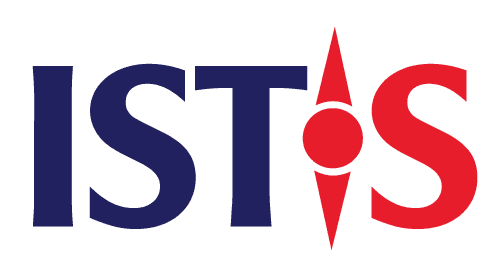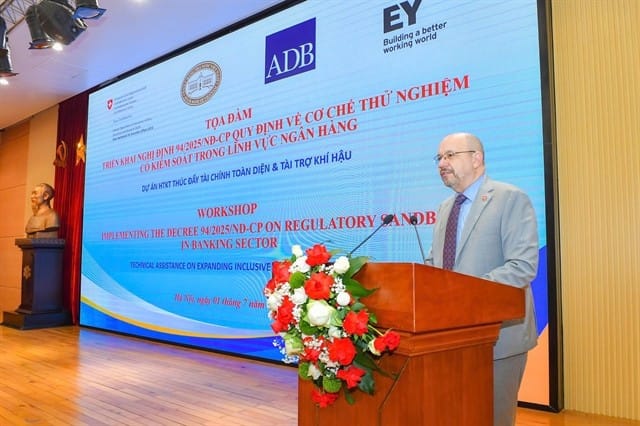A Data-Rich World with Siloed Access
We live in a world awash with data. From satellite imagery and health records to environmental sensors and financial transactions, data is being generated at unprecedented volumes and speeds. However, while the amount of available information has grown exponentially, meaningful access to this data remains a challenge. Data is often locked away in institutional silos, stored in incompatible formats, or accessible only to a limited audience.
Enter the open data hub — a new generation of platforms designed to aggregate, standardize, and disseminate large-scale datasets across sectors and systems. More than just repositories, these hubs provide structured access, tools, and governance frameworks that enable meaningful reuse. In the face of global challenges such as climate change, pandemics, and economic inequality, open data hubs are not merely technical solutions — they are strategic enablers of transparency, innovation, and collective intelligence.
What Is an Open Data Hub?
An open data hub is a centralized platform or infrastructure that aggregates data from multiple sources and makes it accessible to users in an open, standardized, and interoperable format. While similar in spirit to data lakes and APIs, open data hubs go beyond raw storage or transactional exchanges. They often provide metadata, search tools, data visualization, version tracking, and even analytics services.
Unlike traditional systems designed for closed, internal use, open data hubs are built to facilitate public or multi-stakeholder access — often with licenses that encourage reuse, adaptation, and collaboration. Some focus on specific domains such as agriculture, transportation, or health; others are cross-sectoral. The underlying principle is consistent: by making data available, understandable, and actionable, these hubs democratize insight and foster data-driven ecosystems.
Why Open Data Matters
For governments, open data enables public accountability and data-driven policymaking. For journalists and researchers, it offers a bedrock for investigations, trend analysis, and public discourse. For startups and private-sector innovators, it provides raw material for new products, services, and business models.
A key benefit of open data is its ability to level the playing field. Small enterprises and civil society organizations often lack the resources to collect or purchase proprietary data. By accessing government datasets on procurement, land use, public health, or education, these actors can engage in more informed decision-making and innovation.
Furthermore, open data stimulates market efficiencies. When energy grid data, weather reports, or traffic patterns are shared openly, both private firms and the public can optimize behavior, reduce waste, and improve outcomes.
Government-Led Open Data Hubs
Many of the most robust open data hubs are spearheaded by governments. National platforms like Data.gov (U.S.), Data.gov.uk (UK), and the EU’s Open Data Portal have set standards for making public-sector data available. City-level hubs — such as New York’s NYC Open Data or Singapore’s Data.gov.sg — allow citizens to engage with local infrastructure, service delivery, and urban planning data.
These platforms are used for diverse purposes: tracking infrastructure spending, monitoring air quality, modeling public transport usage, or supporting pandemic response. In all cases, governments walk a delicate line between openness and responsibility. Sensitive data must be anonymized; geopolitical concerns must be addressed; and public trust must be maintained through transparent governance.
A mature open data hub reflects not only technical capability but also a culture of openness. It requires leadership, inter-agency cooperation, and policies that prioritize long-term sustainability over one-off visibility.
Open Data in Research and Academia
In the research world, open data has become an essential pillar of reproducibility, cross-disciplinary collaboration, and innovation. Academic institutions are increasingly establishing their own data hubs or partnering with broader platforms like Harvard Dataverse, Zenodo, or Dryad.
When datasets from clinical trials, climate studies, or social science surveys are shared, other researchers can validate findings, test new hypotheses, or apply machine learning techniques to extract new insights. Open-access mandates from funders like the National Institutes of Health (NIH) or the European Research Council (ERC) are further accelerating this trend.
Moreover, open data enables interdisciplinary research. For example, epidemiologists might combine open mobility data with virus transmission models, or economists might analyze satellite images of nighttime lights to assess economic activity in conflict zones. These breakthroughs are only possible when data is open, discoverable, and well-curated.
Private Sector and Cross-Sector Innovation
While much of the early momentum behind open data came from the public sector, businesses are now realizing the benefits of data sharing as well. Some companies publish anonymized datasets for public good, improve their ESG (Environmental, Social, and Governance) metrics, or participate in “data collaboratives” that solve systemic challenges.
For instance, telecom companies may share aggregated mobility data with urban planners. Banks might release datasets on financial inclusion. Energy firms may provide real-time emissions data to help cities meet sustainability goals. These cross-sector collaborations enable joint value creation while addressing common problems.
Open data hubs serve as bridges between these stakeholders, offering shared protocols and ethical guidelines. They also protect against fragmentation by ensuring that data formats, licenses, and quality controls are harmonized across different contributors and users.
Technical and Ethical Challenges
Despite the promise of open data hubs, several challenges remain. On the technical front, data formats often vary widely across providers, making integration difficult. Metadata may be incomplete, and version control can be inconsistent. Interoperability — the ability for different systems to “talk” to each other — remains a work in progress.
Ethical concerns are equally pressing. Who owns the data? How is consent handled? How do we ensure that data doesn’t reinforce existing inequalities or power asymmetries? In particular, data on marginalized populations can be misused if not managed properly.
There’s also the issue of accessibility. Not everyone has the bandwidth, literacy, or computing resources to engage with large datasets. Thus, open data initiatives must invest in user-friendly interfaces, documentation, and capacity-building to ensure true inclusivity.
Case Studies That Show Real-World Impact
The value of open data hubs is perhaps best illustrated through real-world examples:
- Urban Mobility: Cities like Helsinki and London have used open transportation data to improve traffic flow, integrate ride-sharing, and support real-time commuter apps.
- Agriculture and Climate: Platforms such as GODAN (Global Open Data for Agriculture and Nutrition) help farmers in developing countries access satellite imagery, weather forecasts, and crop disease models, aiding climate adaptation and food security.
- Public Health: During the COVID-19 pandemic, open dashboards and case tracking systems allowed researchers and citizens alike to monitor trends, allocate resources, and develop predictive models.
Each case underscores a broader insight: when data is opened, society gains the ability to respond faster, plan better, and innovate more effectively.
The Future of Open Data Hubs
The next frontier in open data hubs lies in automation, linkage, and intelligence. Concepts like FAIR data — which is Findable, Accessible, Interoperable, and Reusable — are guiding new platform designs. Linked data approaches and semantic web technologies promise to create smarter ecosystems where datasets “talk” to each other across domains.
Artificial intelligence will play a growing role in tagging, cleaning, and interpreting large-scale datasets. Machine learning models may soon identify data gaps, flag anomalies, or even suggest policy interventions. Meanwhile, blockchain and decentralized identity tools may help ensure provenance and trust.
The long-term goal? A global data commons — responsibly governed, technically robust, and societally beneficial. But achieving this vision requires investment not just in infrastructure, but also in legal, ethical, and institutional frameworks.
From Silos to Systems
The open data hub symbolizes a shift in how societies approach knowledge, innovation, and collective problem-solving. In a world beset by complexity and uncertainty, data alone is not the answer — but shared, trusted, and well-used data may be our best asset.
Governments, researchers, businesses, and communities must now work together to build a future where data serves the public good. That means investing in interoperability, ethical governance, digital literacy, and cross-sector collaboration. The open data hub is not just a technical fix — it is a systemic opportunity to reshape how we think, govern, and grow in the 21st century.







